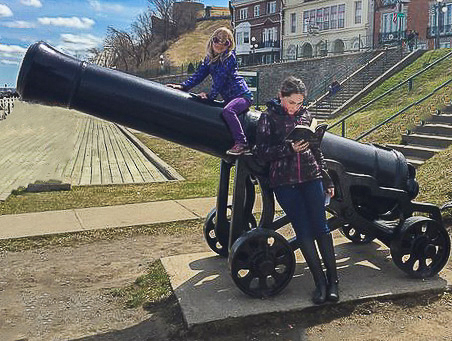Can a loose cannon have a strategy?
30 April 2018
So…can a loose cannon have a strategy? Sure, once we realize that we use the word strategy in a way that we never define it.
Strategy may be defined by intention, but it has to be realized in action. An intended strategy looks forward, as some sort of plan or vision into the future—whether or not it will be realized. A realized strategy looks back, to some existing pattern in action, namely consistency in behavior—whether or not it was intended.
How about Donald Trump? With regard to migrants and refugees, Muslim and Mexican, he has certainly had strategy, intended as well as partly realized: keep them out and get them out. In other words, his actions have been consistent with his stated intentions: With regard to much else, however, by the dictionary definition of strategy, Trump has been a loose cannon, shooting off his mouth in all directions, frequently contradicting, not only reason, but also himself. Where’s the strategy in that?
As for realized strategy, a host of Trump’s actions speak louder than his words, and differently, in fact rather consistently. Consider the following ones: picking fights with established allies while cozying up to autocrats; challenging existing trade agreements and long-standing alliances; repeatedly attacking the FBI, the Justice Department, and the intelligence agencies; emasculating the Department of State by leaving so many posts unfilled while proposing drastic reductions in its budget, alongside that of other major departments; and championing tax cuts that could paralyze the government and wreak havoc in the society.
Pattern may be in the eyes of the beholder, but it is tough not to behold this one, however outrageous it may seem: Donald Trump appears to be taking down the government of the United States of America. This is not your usual neo-con agenda of less government; it looks to be a concerted attack on the American state itself.
Why would the president of the United States do such a thing? In his own terms, what’s in it for Donald Trump? Maybe more to the point, what’s in store for Donald Trump if he does not do this? To answer these questions, please understand that realized strategy need not be driven by an actor’s own intentions; it can be driven by the force of circumstance, even by the intentions of some other person able to exercise power over that actor.
Who might be able to do that? The answer seems evident enough. Were Vladimir Putin president of the United States, could he be doing any better for Russia? “Trade wars are good” said Donald Trump. Sure, for Putin’s Russia. It looks like Donald Trump’s realized strategy is executing Vladimir Putin’s intended strategy.
On the other side of this coin, the Mueller Inquiry has indicated that the Russians were determined to see Donald Trump elected. But why would they want a loose cannon in the White House, such an obvious threat to their security? Because, in Putin’s pocket, Trump has not been a loose cannon at all, but a straight shooter—consistently in the direction of Russian interests. (Has his recent rash of actions in the Ukraine, Syria, and the sending home of Russian diplomates changed that? Coming suddenly and all together, they look suspicious: a smokescreen to obscure his real agenda?)
What might Putin have on Trump? Some video shot in a hotel room? Undisclosed evidence of Russian collusion in the Trump election? More likely, the capacity to call in loans that would bankrupt Trump’s businesses. Regardless of the reason, what matters is Trump’s behavior. What matters more is the threat this poses to the security of all of us.
© Henry Mintzberg 2018. Following on this, I am preparing an article entitled “Donald Trump is not the problem.”